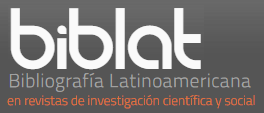Evaluation of nursing assistance quality: which is the best strategy for passing the results on?
DOI:
https://doi.org/10.5433/1679-0367.2009v30n2p121Keywords:
Health care quality, Nursing education, Nursing staff.Abstract
Quality control in nursing assistance involves the establishment of patterns based on a model of care that must support the development of measures that can be achieved and serve as a guide of actions to professionals. The purpose of this work was to determine the opinion of a nursing staff of an admittance unit at the Regional University Hospital of Northern Paraná, Londrina, concerning the way that was used by the Quality Control Advisory Body of Nursing Assistance (ACQAE) to pass on evaluation reports of the local assistance quality and propose an adequacy. This was a descriptive-exploratoryquantitative study. The data gathering instrument was a questionnaire with 21 questions, related to the quality process of nursing assistance, carried out at this admittance unit. Results showed that 81.8% considered the data surveyed by ACQAE important for the professional practice; 44.6% considered the way the results were passed on insufficient; 65% suggested that the nurse working in this unit should give feedback to the other employees. The study confirmed the hypothesis previously considered that the nursing staff of the studied unit prefers a professional with previous experience in nursing to carry out the feedback, that is, the nurse. The accomplishment of this process by another professional or intern was considered insufficient by the teams of experts.
Downloads
Downloads
Published
How to Cite
Issue
Section
License
Copyright (c) 2010 Semina: Ciências Biológicas e da Saúde

This work is licensed under a Creative Commons Attribution-NonCommercial 4.0 International License.
adopts the CC-BY-NC license for its publications, the copyright being held by the author, in cases of republication we recommend that authors indicate first publication in this journal.
This license allows you to copy and redistribute the material in any medium or format, remix, transform and develop the material, as long as it is not for commercial purposes. And due credit must be given to the creator.
The opinions expressed by the authors of the articles are their sole responsibility.
The magazine reserves the right to make normative, orthographic and grammatical changes to the originals in order to maintain the cultured standard of the language and the credibility of the vehicle. However, it will respect the writing style of the authors. Changes, corrections or suggestions of a conceptual nature will be sent to the authors when necessary.
This Journal is licensed with a license Creative Commons Assignment-NonCommercial 4.0 International.

















